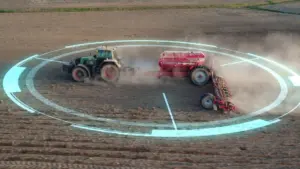Biologists Figured Out How to Generate New Neurons in the Adult Brain, Revolutionizing Neurodegenerative Disease Research
Recently biologists discovered how to generate new neurons in the adult brain. This is an incredible breakthrough that has enormous potential to revolutionize neurodegenerative disease research. By generating genetically-mutated mice with a unique gene that activates dormant neural stem cells, scientists were able to generate new neurons in the brain. For years, scientists have been searching for ways to promote the growth of new neurons in the brain, especially in individuals with neurodegenerative diseases such as Alzheimer’s and Parkinson’s. This new discovery could lead to new treatments and therapies that could help to restore brain function and improve the quality of life for millions of people around the world.
Leslie Samuel, founder of Interactive Biology, gives some context for the importance of genetic trading between organisms for scientific research, and notes how the loss of nerve cells in the brain is one of the hallmarks of neurodegenerative diseases. The ability to generate new neurons in the adult brain could be a game-changer in the field of neurology.
Leslie’s Thoughts
“Anytime you have a situation where extracts from one organism can have beneficial effects on another organism, especially if that other organism is a human, I think it’s an exciting thing. In my last video I spoke about how certain cordyceps fungi can have anti-cancer effects. But it doesn’t stop there.
In fact, studies are beginning to show that some compounds that are extracted from certain species of cordyceps can help to protect neurons from damage and even promote their growth by increasing the production of nerve growth factor. This has potentially huge implications for people suffering with neurodegenerative diseases, things like Alzheimer’s disease or Parkinson’s disease, because these diseases are characterized by a loss of nerve cells in the brain.
So if we can somehow stimulate the exact opposite nerve cell growth, that could be very helpful. But it’s important to understand that we’re still relatively early in this process of studying whether this can be beneficial in therapies in the future. But regardless, it’s awesome to see the progress that’s been made so far, and it’s exciting to think about what that could mean for the future.”
Article written by Galina Mikova.







